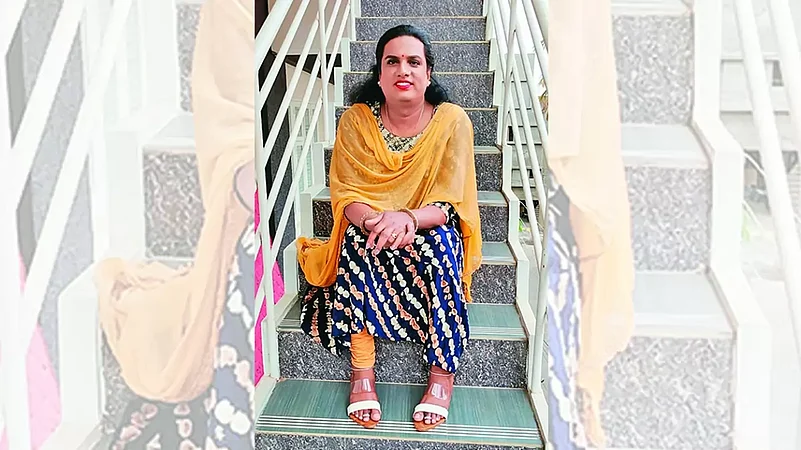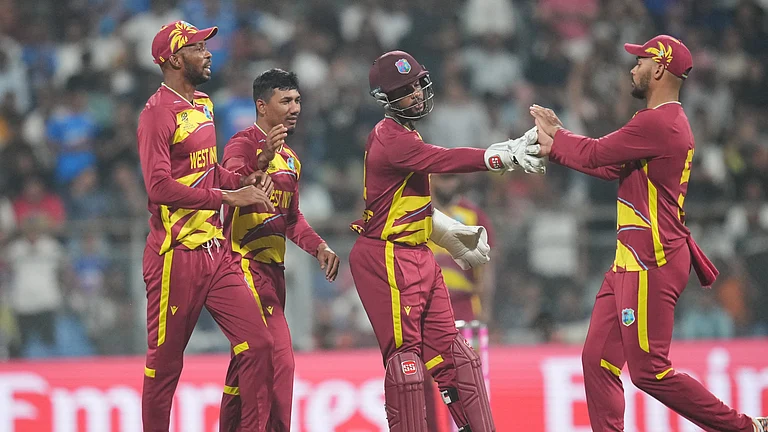Uma, a transgender activist who heads the NGO Jeeva, tells Omar Rashid in an interview that the transgender community’s fight is not just about marriage. It’s about their existence.
How does denial of marriage affect members of the transgender community at a personal and social level?
We recognise as women and as women we can enjoy our constitutional rights, freedom and equality. As a woman, I may have a desire to live as a heterosexual family does, but as a transwoman, I cannot legally get married. There is no system. A heterosexual family can adopt, but we can’t. The NALSA (National Legal Services Authority) judgment of 2014 clearly says we have a right to identify either as a man or a woman. So, legally, I’m a woman, but at the same time, as a transwoman, I don’t have legal marriage rights. This violates my constitutional right to equality. Many transgender people are living with their male partners. What happens when the partner leaves? Marriage brings responsibility.
What about the legal responsibility?
As of now, there is no such responsibility. People may come into our lives, play with our emotions and leave us. Because of these traumas, many transgender people end their lives.
Is it because they lack a support system?
Yes. Many couples get married in temples, but legally they are not considered husband and wife. Since they are living together, they may have some kind of earning or some property. But if something happens to my partner, I won’t have any legal rights over his financial resources. If the partner falls sick and needs to undergo a surgery, I don’t have the right to sign on the consent letter. I cannot even give insurance surety.
You have said that you cannot get the rights of a woman unless you change your gender. How difficult is this sex change?
The Transgender Persons Protection of Rights Act says that if I want to claim myself to be a transwoman, first, I will have to apply for a TG Card (transgender card certificate) on a central portal and submit some documents. They will be processed after three-four months because the magistrate, psychiatrist department and other members will have to certify that I am a transwoman. Who is identifying the gender? Why do we have to seek recognition from others? How many magistrates know about our community? Fundamentally, if somebody is ascertaining my gender identity, it is a violation of my right. After getting the TG, I have to apply again to declare if I am fully converted as a male or a female. I have to send documents like a psychiatric certificate and the surgery certificate after which they will issue me a final certificate. How many trans members can get this certificate?
You also make this point that the denial of right to marriage leads society to associate transpersons with only begging and sex work. What changes if you get the right to marriage?
Don’t reduce us to begging and sex work. We have a life too. Many transgender people are working in the mainstream. We are fighting for our rights. We are asking for equality. Many men who are partners with transgenders are scared because society is not accepting transgender marriage rights. There is no legal provision. Once the marriage law applies to us, it becomes legal. Many transgender people benefit from these relationships. They will also feel encouraged to give a good life to the babies they will adopt. If we have the right to get married, gradually we can change society. We can live how heterosexual families live. There is lack of awareness and stigma attached to us. Many families want to accept their trans-children, but they don’t. Legality of marriage will ensure acceptance and provide us with a support system. Legal change will bring in social change and gradually families will accept us too.
Many transgender people are supporting children. They are not legally adopting them but they are providing them with a good education. But when they take these children to schools for admission, we are asked to provide husband’s name. If I am not legally married, how can I give my husband’s name? Marriage rights will also bring in adoption rights.
What is your legal fight about in the Supreme Court?
This fight is not only about marriage. The fight is linked to our day-to-day life and existence. People think we are asking for marriage rights only for the purpose of intercourse. Don’t limit it to that. Think about our lives. I am asking for equality. As an Indian citizen, I have a right to get married. I’m asking for that right.
(This appeared in the print as ‘I Have a Right to Get Married’)

























